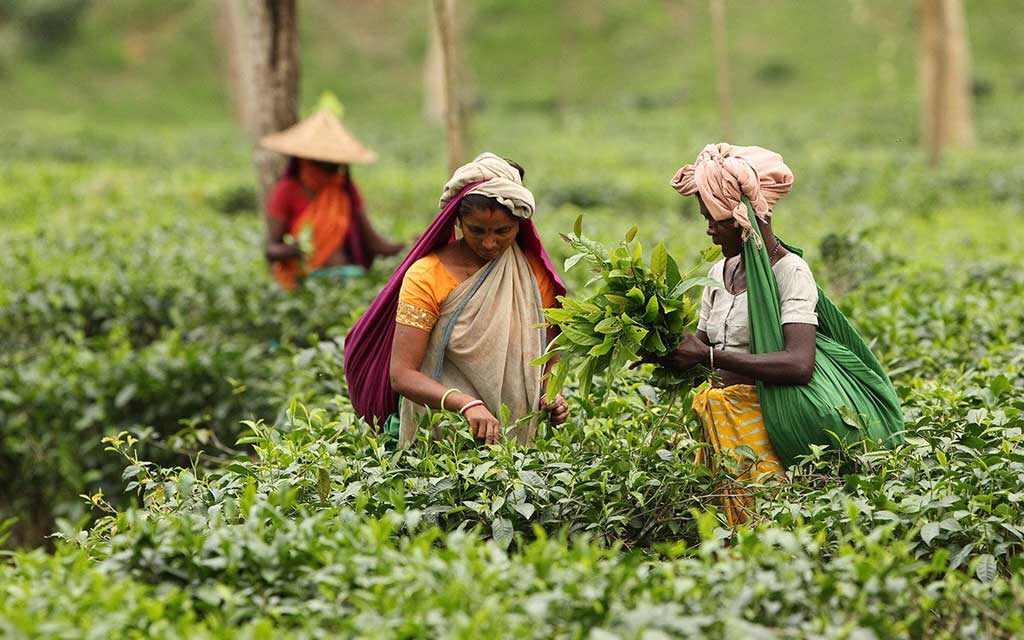Tea cultivation creates 25,000 jobs in 5 northern districts
The rapidly boosting “small-scale gardening-basis” tea cultivation has created jobs for more than 25,000 rural people, including 15,000 women, in five northern districts of the Kartoa Valley ecological zone.
Talking to BSS, President of Bangladesh Small Tea Garden Owners’ Association Amirul Haque Khokan said small-scale gardening-basis tea farming has ushered in a new hope to change the fortune of local farmers in these northern districts.
“More than 25,000 unemployed people, including 15,000 women, are earning well through farm-activities and plucking tea-leaves to lead better lives even during the coronavirus pandemic in the valley,” he said.
The labourers are earning Tk500-600 as daily wages in cash by plucking green tea-leaves in groups of 10 to 20 men and women to lead a solvent life.
“Though the rural women passed through hard times even an era ago amid abject poverty, they have come out of the vicious cycle of poverty now to lead better lives with a dream of a better future for their children,” Khokan added.
Officials of Bangladesh Tea Board (BTB) said the Kartoa Valley ecological zone comprises Panchagarh, Thakurgaon, Dinajpur, Nilphamari and Lalmonirhat districts.
“The valley witnessed an all-time record 9.6 million kg of made-tea production last year against 8.47 million kg in 2018 and 5.44 million kg in 2017,” said Senior Scientific Officer at Bangladesh Tea Research Institute Dr Mohammad Shameem Al Mamun.
Mamun, also project director of the Northern Bangladesh Project of BTB, said owners of nine registered and 19 unregistered gardens and 6,558 small holders cultivated tea on 8,681 acres of lands producing 46.9 million kg of green tea leaves in 2019 in the valley.
Workers living well by working in tea gardens even amid the Covid-19 pandemic
The rapidly boosting “small-scale gardening-basis” tea cultivation has created jobs for more than 25,000 rural people, including 15,000 women, in five northern districts of the Kartoa Valley ecological zone.
Talking to BSS, President of Bangladesh Small Tea Garden Owners’ Association Amirul Haque Khokan said small-scale gardening-basis tea farming has ushered in a new hope to change the fortune of local farmers in these northern districts.
“More than 25,000 unemployed people, including 15,000 women, are earning well through farm-activities and plucking tea-leaves to lead better lives even during the coronavirus pandemic in the valley,” he said.
The labourers are earning Tk500-600 as daily wages in cash by plucking green tea-leaves in groups of 10 to 20 men and women to lead a solvent life.
“Though the rural women passed through hard times even an era ago amid abject poverty, they have come out of the vicious cycle of poverty now to lead better lives with a dream of a better future for their children,” Khokan added.
Officials of Bangladesh Tea Board (BTB) said the Kartoa Valley ecological zone comprises Panchagarh, Thakurgaon, Dinajpur, Nilphamari and Lalmonirhat districts.
“The valley witnessed an all-time record 9.6 million kg of made-tea production last year against 8.47 million kg in 2018 and 5.44 million kg in 2017,” said Senior Scientific Officer at Bangladesh Tea Research Institute Dr Mohammad Shameem Al Mamun.
Mamun, also project director of the Northern Bangladesh Project of BTB, said owners of nine registered and 19 unregistered gardens and 6,558 small holders cultivated tea on 8,681 acres of lands producing 46.9 million kg of green tea leaves in 2019 in the valley.









